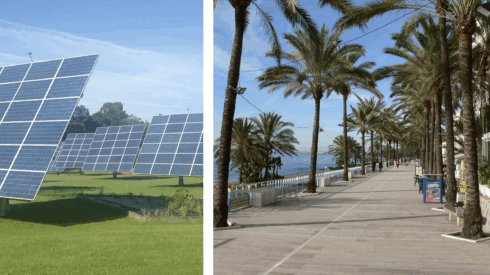
The COVID-19 pandemic has a deep impact on global economy and revealed the need for digitization, as economic development all over the globe has taken a hit. Entire sectors like the service industry have shut down in a number of countries and the fragility of global supply chains has become apparent. The pandemic has also demonstrated the need for digitization of both the public and private sectors to adjust business models, to cope with the outbreak and contain its negative effects.
It has become obvious that connectivity is the key to rebound both economically and socially. Thierry Breton, EU Commissioner for Internal Market emphasized this in July 2020 during his speech at Hannover Messe: “This crisis has shown, how much connectivity infrastructure is critical for supporting Europe´s digital economy and its recovery.”
However, not all economies have been able to transform at the same pace. For its annual Global Connectivity Index (GCI), Huawei has, since 2015, tracked the progress of 79 economies in deploying digital infrastructure and capabilities, looking into four core technologies called “enabler categories” (broadband, cloud, IoT and AI), measuring them by 40 GCI indicators.
ICT-investments contribute to economic competitiveness and recovery from the pandemic.
For the 2020 edition, the report looked at three GCI country clusters – Starter, Adopter, and Frontrunner – In order to differentiate between different levels of connectivity. Results show that economies with higher GCI scores have greater digital readiness, thanks to mature infrastructure like high-speed broadband and cloud capabilities, which has lessened the impact of the pandemic. The report also shows that there is a strong relationship between GCI score and GDP:
- Investments in ICT infrastructure correlate with strong GDP per capita, indicating that digital technologies accelerate the development of advanced factors for increasing economic competitiveness and recovery from the negative effects of the pandemic.
- Investing in ICT helps industries digitize and enables economies to increase their order of productivity.
- ICT maturity drives digital transformation towards efficiency gains regarding seven key parameters: tasks, functions, systems, organizations, agility, ecosystems, and resilience.
Starters are closing the gap to digital leaders.
A deep dive into the data of the report reveals that Starter countries are narrowing the gap to the leading economies – thanks to improvements in broadband coverage and affordability. Over the last five years Starters increased their mobile broadband adoption by a factor of 2.5 with several countries having close to 100% coverage. In Frontrunner countries there is a strong push to maintain IT expenditure and organizations in both Frontrunner and Adopter nations are prioritizing IT budgets despite the pandemic. Overall, the report reveals that economies with higher ICT maturity can leverage the digital transformation to respond quicker to COVID-19, mitigating the negative impact on GDP per capita by 50%.
Europe scores in the Frontrunner and Adopter GCI clusters but countries need to do more.
Switzerland, as the highest-ranking European country in the 2020 report (rank 3 with a score of 81), scored impressive numbers. In all four technology enabler categories, Switzerland scored well above average, making it number three among the frontrunner countries – tying Singapore and being eclipsed only by the US.. This is driven, among other things, by an exceptional broadband score of 101 out of 120 (the average across all clusters is 62) as well as strong performance regarding cloud (63), AI (45) and IoT (69). Switzerland also shows strong potential for further digitization with a score of 83 in that category, with the country relying on strong local experience and R&D.
Spain and Portugal, two other European countries, both finish in the top five of the Adopter cluster (with an overall rank of 23 and 25), with a score of 61 each. Looking at the details reveals significantly lower numbers in comparison to Switzerland regarding investment in ICT, cloud, and security. While both score lower than Switzerland in all four technology enabler categories, the score of Spain and Portugal is still above average (broadband, IoT) or average (cloud, AI), identifying the two major areas where both countries need to close the gap to the frontrunner group. However, with regard to investments in 4G/5G, fiber- and telecom networks, both Spain and Portugal score significantly higher than Switzerland – demonstrating the two countries’ commitment to creating a strong connectivity foundation to build on.
Digitization needs to be top priority now and in the future.
The numbers in Huawei’s 2020 GCI report emphasize that ICT needs to be at the forefront of any organization’s strategy now and after the pandemic. The dependence on high-speed broadband for remote working and education is increasing. Cloud computing and scalable infrastructure, artificial intelligence and IoT are rolled out among the Forerunner countries and the top nations in the Adopter cluster. While some Governments have started to put plans in place to build enabler technologies into their economies, it is important that all national leaders realize the need to review the readiness of their country’s digital infrastructure to develop ICT strategies and plans to facilitate the digital transformation. The numbers in the 2020 report show that nations with higher digitalization maturity are many times more productive than other economies. To accelerate the economic recovery to pre-pandemic levels, governments need to consider which order of productivity their key economic sectors are operating in and bring their economic sectors up to a higher order of productivity though targeted digitization.
Click here to read more Technology News from The Olive Press.








